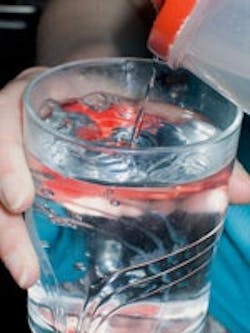California Proposes Tough Perchlorate Drinking Water Standard
Source Environmental Working Group
California’s proposed drinking water standard for perchlorate is a strong rebuke to the U.S. EPA's dangerously high cleanup standard. It is also in response to the failure to set a national drinking water standard for the rocket fuel chemical that contaminates drinking water supplies in 40 states, according to Environmental Working Group (EWG).
California health officials proposed a maximum contaminant level (MCL) of 6 ppb for perchlorate in drinking water. A public comment period ends Nov. 3.
Last month, Massachusetts adopted a drinking water standard and waste-site cleanup standard of 2 ppb. The EPA's cleanup standard is 24 ppb. Federal action on drinking water standards has been stalled due to opposition from the Pentagon, which is responsible for most of the contamination from military bases and defense contractors.
EPA's own Children's Health Protection Advisory Committee has criticized the agency for assuming that people are only exposed to perchlorate through drinking water, when in fact tests by EWG, academic scientists and federal researchers have found perchlorate in milk, lettuce and other foods.
"The most significant thing here is not the difference between Massachusetts and California, but that two states that are leaders in public health have affirmed that perchlorate in drinking water should be limited to the low parts per billion to account for perchlorate exposure through food and water," said Renee Sharp, an EWG senior scientist who has studied the rocket fuel chemical since 2000. "To protect children, pregnant or nursing mothers and other sensitive populations, EPA should act promptly to set a similar national standard."
Source: Environmental Working Group
